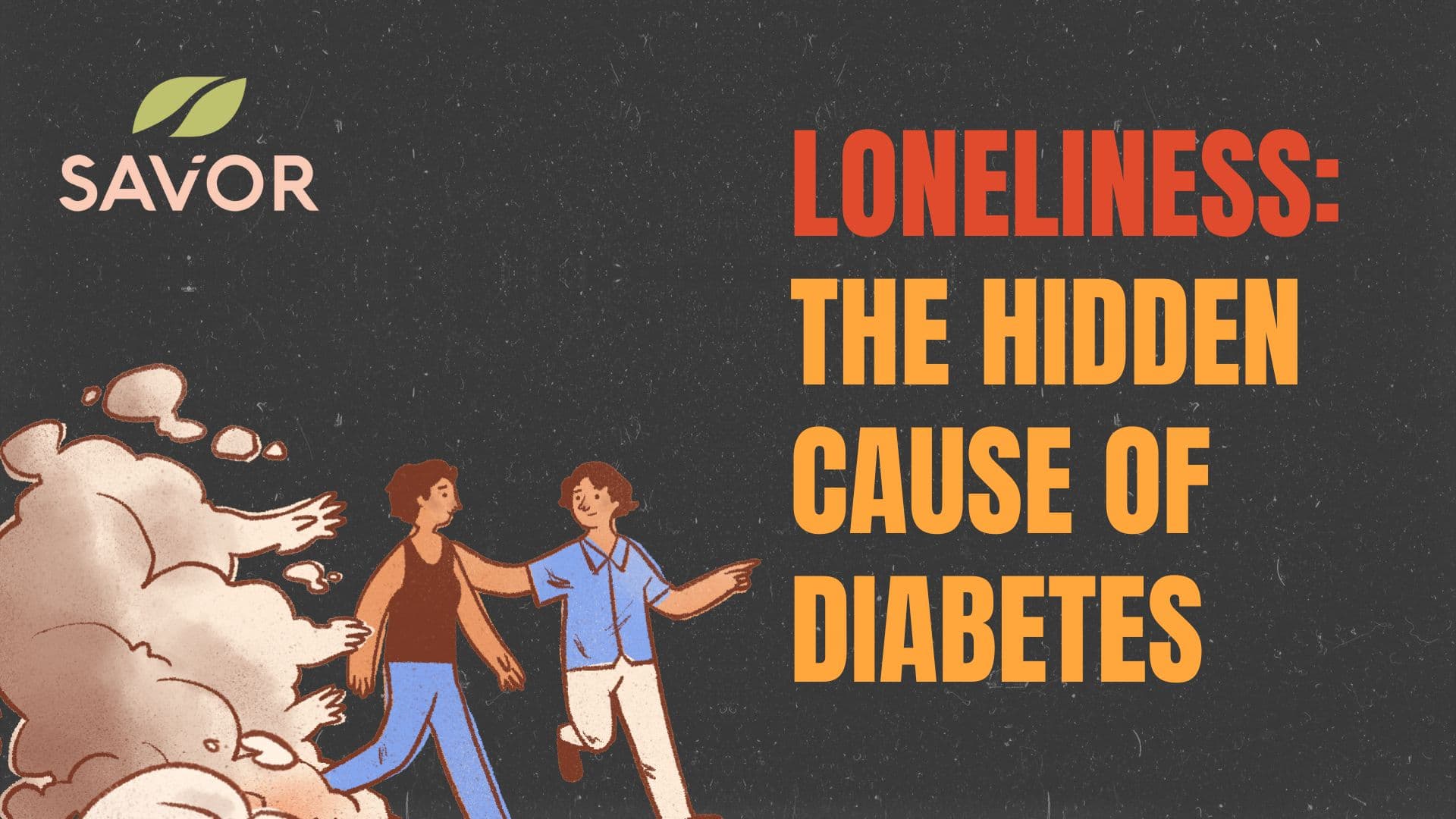Loneliness: The Hidden Cause of Diabetes
We all know that diet, exercise, and genetics are key players in the development of type 2 diabetes—but what about loneliness?

Loneliness: The Hidden Cause of Diabetes
We all know that diet, exercise, and genetics are key players in the development of type 2 diabetes—but what about loneliness? It may seem surprising, but a growing body of research is showing that social isolation and loneliness can significantly increase the risk of developing diabetes, even in otherwise healthy individuals.
Let’s dive into how feeling lonely can impact your body—and your blood sugar.

Loneliness and Diabetes: What’s the Link?
Loneliness isn’t just a fleeting feeling. It's a chronic stressor that can trigger a cascade of biological and behavioral changes. According to a recent study published in Diabetes Research and Clinical Practice, people who reported frequent feelings of loneliness had a 32% higher risk of developing type 2 diabetes over time—even after accounting for other risk factors like depression, diet, and income.
Researchers believe this link is partly due to how loneliness affects the brain and stress response. When we’re lonely, the body goes into “fight-or-flight” mode more often, increasing stress hormones like cortisol, which in turn can disrupt blood sugar control and insulin sensitivity.

Physical Activity: A Key Mediator
Interestingly, reduced physical activity appears to be one of the main ways loneliness leads to diabetes. A study featured on News Medicalexplains that lonely individuals are less likely to engage in regular exercise, leading to obesity, and ultimately, a greater risk of type 2 diabetes.
What’s more, loneliness can erode motivation and energy levels, making it harder for people to maintain healthy routines. Over time, this creates a feedback loop: less activity → more weight gain → higher blood sugar → higher diabetes risk.

The Role of BMI and Obesity
The News Medicalstudy also highlighted Body Mass Index (BMI) as a critical factor. People experiencing loneliness are more likely to gain weight, especially abdominal fat—one of the strongest predictors of type 2 diabetes. This may be due to both lifestyle factors (like inactivity or emotional eating) and physiological ones (like stress-induced metabolic changes).
In fact, findings from the PMC article reinforce this connection: loneliness was significantly associated with type 2 diabetes even when symptoms of depression were ruled out, further supporting the theory that physical changes in behavior and body composition play a central role.

Not Just Mental Health—It's Whole-Body Health
Healthline’s coverage drives this point home: loneliness should not be viewed solely as a mental health issue. It’s a public health issue with real, measurable impacts on physical well-being. From weakened immune responses to heightened inflammation and poor sleep, loneliness affects every system in the body—and can quietly pave the way to chronic illnesses like diabetes.

What Can You Do About It?
The good news is that this risk factor is modifiable. Here are a few research-backed ways to combat loneliness and protect your metabolic health:
Stay connected: Regular check-ins with friends or joining community groups can boost mental and physical well-being.
Be active, together: Walks with a neighbor or joining a fitness class can improve mood and reduce diabetes risk.
Seek support: If you’re feeling chronically lonely, talking to a therapist or a friend can help lift the weight off your shoulders.
Set a routine: Simple daily habits—like scheduled meals, physical activity, and social interactions—can create structure and purpose.

Loneliness Is More Than a Feeling
We often think of diabetes prevention in terms of sugar and steps—but now it’s clear we need to think about connection too. Loneliness doesn't just weigh on your heart; it may also raise your blood sugar. By recognizing the health risks of social isolation, we can start addressing one of the more overlooked contributors to the global diabetes crisis.
Sources:
Love great food and exclusive perks? 🍽️✨ Sign up as a Savor of Life member today and enjoy a FREE Buffalo Cauliflower with your main dish! 🎉 Don't miss out—join now and treat yourself!
Planning an event? Let Savor of Life bring the flavors to you! 🍽️✨ From intimate gatherings to large celebrations, our catering services offer delicious, high-quality meals tailored to your needs.
📅 Book now and make your event unforgettable! →
Ready to transform your dining experience? 🍽️✨ Sign up for our Savor Transform 10-Day Challenge and enjoy exclusive perks, special offers, and unforgettable meals! 🌱💚
👉 Join now: Savor Transform
Craving healthy and delicious meals? 🌱🍽️ Be sure to stop by our Savor Restaurant to satisfy your plant-based cravings!🌍💚